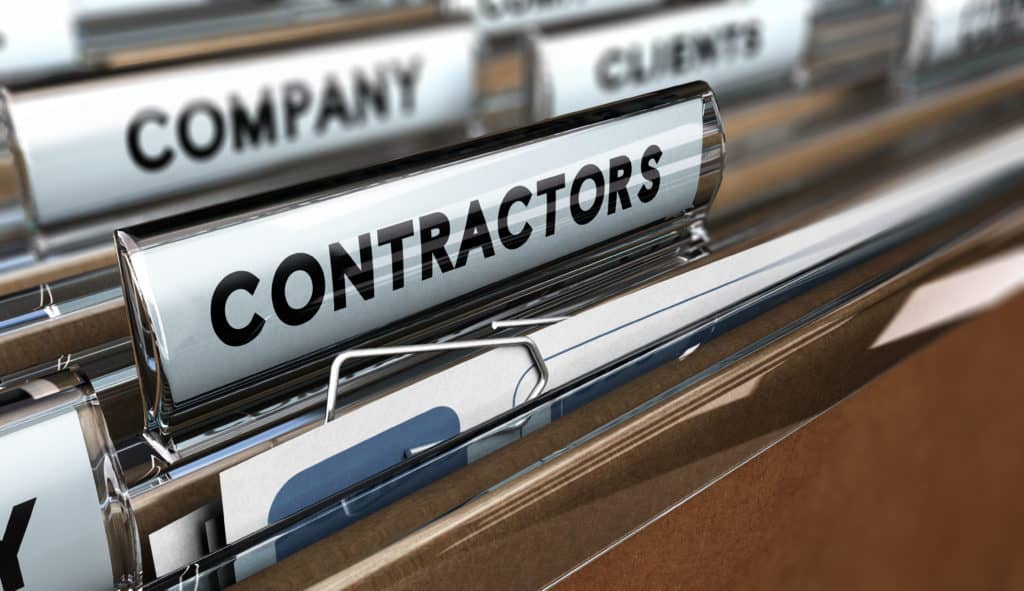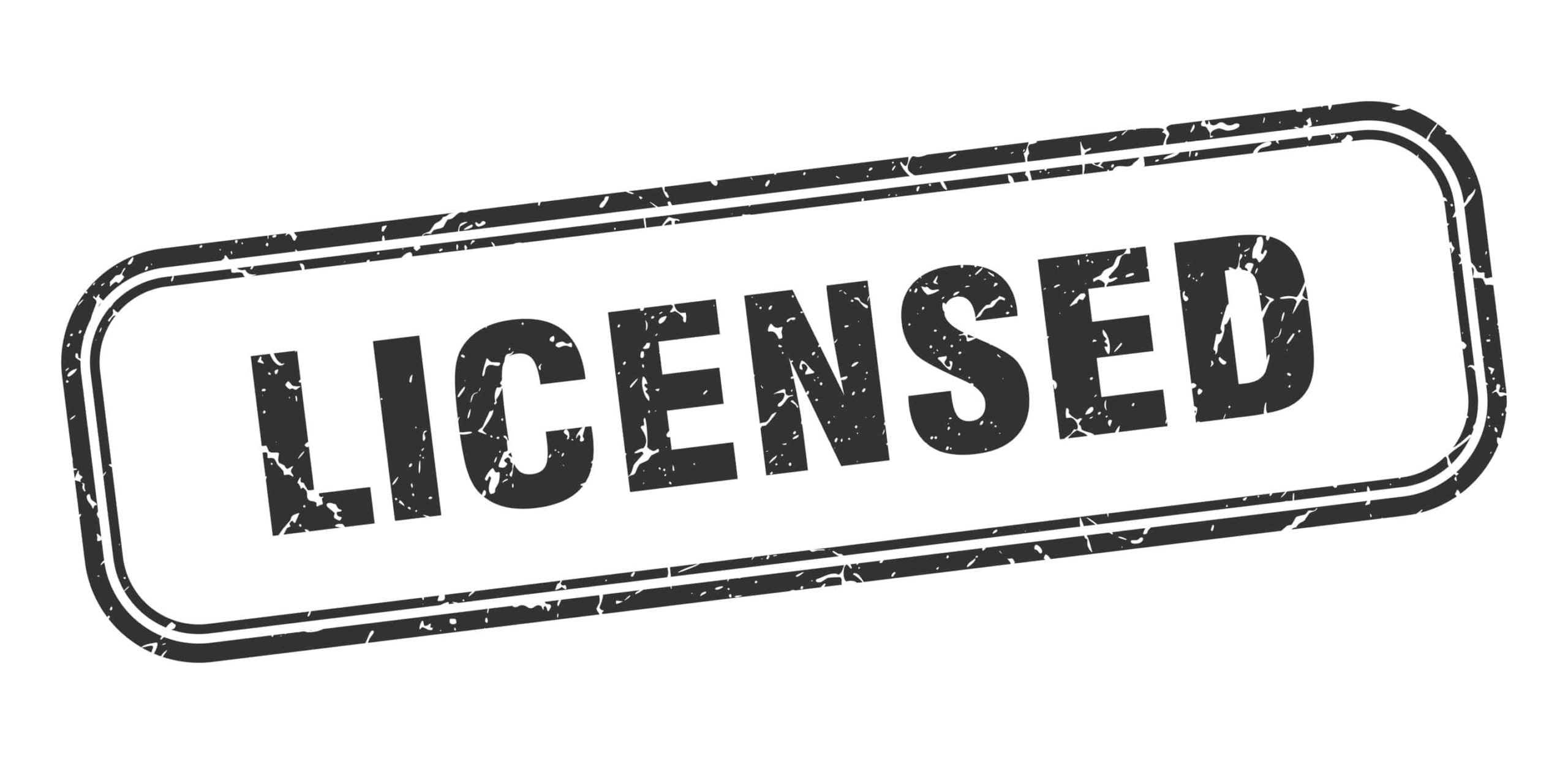
Do you need to hire someone in the skilled trades? For example, do you need the expertise of a plumber? How about an electrician? Any time you hire a tradesmen or contractor, it’s important to find someone who is licensed. This ensures that the person you hire is qualified and reputable.
Table of Contents
Verifying that a contractor is licensed takes skill. The process is not as straightforward as you might think. For anyone who wishes to be a smart consumer, this skill is worth honing. In this post, you’ll learn everything you need to know about finding a licensed contractor.

Why Must a Contractor Be Licensed?
There are several reasons why it matters that you hire a contractor who has a license.
Understand that licensing requirements vary state by state. Because of this, it can be difficult to generalize about the contractor license search. There are a few general observations that we can make.
First, in many states, it is illegal to work in the skilled trades without a license. When you hire someone who is unlicensed, it means that person is breaking the law. Verifying your contractor’s license is one way to ensure that you’re getting someone reputable and law-abiding.
A contractor’s license also provides that the individual in question has received training. Depending on the state, a license may signify many years of experience as a journeyman or apprentice. A license also certifies classroom learning and the completion of tests.
As you look for a tradesman who can work on your home, you want someone who knows what they are doing. You want someone whose work is dependable. A license helps provide this assurance. It can also deliver to you, the consumer, peace of mind.
A contractor who is licensed will also be up-to-date on local codes. This is usually a major emphasis in the licensing process. Finding a general contractor or tradesman with a license ensures your project will be legal. It helps you verify compliance.
Something else to consider is that a license often has insurance requirements. The tradesman who has a license likely also has the necessary insurance to protect themselves against accident or injury. This also protects you from general liability issues.
One more note: Anyone who can get a license can also lose their license. If the person you hire does not complete their work as promised, you can report them. They risk having their license revoked. This can end their business and their career. This is another way in which you, as a consumer, may enjoy peace of mind.

How to Find a Contractor with a License
We’ve covered some of the reasons why a contractor’s license matters. We’ve shown how it is an important form of consumer protection. Now, let’s get into the process of a contractor search.
Check the Contractor's Website
A good place to start is with a visit to the contractor’s website. Here, you may find information about their license. Most contractors will note that they are licensed, and perhaps even give you their license number. Some contractor websites will list additional information about education and certification. The website might also include examples of past projects.
You don’t have to accept all of this on faith. You have every right to follow-up and verify the license is current. If it’s advertised on the contractor website, that’s a good first sign.
Verifying a License
As for verifying a license, the process depends on the state you’re in.
If contractor license approval happens at the state level, there should be a website you can check. This website will be connected to whichever government department handles contractor’s licenses. In California, for example, this is the Consumer Affairs department.
By visiting the website, you can enter the name of your contractor. If the contractor is licensed, you should see their name and license number pop up.
An alternative is to call the building department in your municipality. They can often confirm whether a local contractor is licensed. They may also have a list of licensed and approved contractors they can point you to.
Ask Your Contractor
Never overlook the obvious step of simply asking your contractor. Tell them you would like to see a copy of their contractor’s license. Or, if you’re on the phone, ask them to give you their license number. Write it down so you can verify later.
Keep in mind that a reputable contractor will want to show you this license. There is no reason for them to hide it. If you find someone who is reluctant to show their license or provide a number, that’s a red flag. It may mean that the person is dishonest. Or, it may signify that their license is out of date.
Once you have the number, you can enter it on the website of the appropriate governing body. (Or, you can call the local building committee.) Input the number and confirm that the license is up to date.
Also remember to ask your contractor for proof of insurance. Again, this is an important way to protect yourself. This is another instance where a reputable contractor has nothing to hide. They will want to show you their insurance information. This helps them earn your trust. Be skeptical of contractors who seem coy or evasive.

What if the License is Invalid?
Sometimes, you may run into a situation where the license is invalid. There are multiple reasons why this might be the case.
The Contractor Had Their License Revoked
One possibility is that the regulating body revoked the contractor’s license. This only happens if the contractor fails to uphold the standards required. It may mean that they failed to complete a project on time, or were dishonest with their customers.
There are no good excuses why a license would be revoked. If you find a contractor in this situation, keep looking for someone else.
The Contractor Missed Licensing Requirements
Contractors and tradesmen must keep current with their state’s requirements. This varies from state to state. Sometimes, licenses must be renewed yearly. This often means completing supplemental education. It ensures that contractors are current on building code changes and other concepts.
If your contractor has an invalid license, it may mean they have fallen behind or forgotten to renew. There may not be anything malicious or dishonest happening. Even so, it’s probably wise to keep looking for someone with a current license. This is an important way to protect yourself and your home.
Reporting a Tradesman
Something else to be aware of: You can report contractors who do bad work. If they fail to complete the project, or the work is shoddy, contact the licensing board. If you can prove your case, it may result in disciplinary action. This can include licensing revocation. By reporting a contractor, you can protect other consumers.
Before contacting the licensing board, be sure you have these items:
- The contractor’s name
- The number on the contractor’s licensing
- A written proposal for the project, with as much information as possible
- Any proof that the work was not done the way it was supposed to (photos can help)
This is a big step, and not one to take lightly. If you believe your contractor has dealt with you unfairly, it may be your only recourse.

Checking a Contractor's Classification
It’s important to confirm that a contractor has licensure that is fully up to date. It’s equally important to ensure that the license is properly classified.
What does this mean? Different licenses denote different kinds of work. Say you were looking for someone to install a hot water heater. It wouldn’t matter if they were licensed in electrical work. What you need in this case is a plumber. It would be important to confirm that the contractor’s status is classified correctly.
This information can be obtained when you run a documentation check. Keep this in mind. Verify a current licensing status, but also the right classification for the work you require.

Know the Signs of an Unlicensed Contractor
There are different strategies for finding a reputable contractor. It helps to know how to make sure the license is correct. It can also be useful to identify the signs of an unlicensed contractor. Identifying an unlicensed tradesman can help you find a reputable one.
How can you tell when a general contractor or tradesmen is unlicensed? There are many warning signs to be aware of. Make sure you watch out for these signs of lapsed or insufficient status.
- The contractor is hesitant to provide you with licensing information.
- The contractor is hesitant to provide you with proof of insurance.
- You are asked to purchase supplies or materials on the contractor’s behalf.
- The contractor tells you that they will only accept payments in cash.
- The tradesman you’re working with refuses to give you a receipt, or anything in writing.
- The general contractor or tradesman is vague when discussing pricing.
- You cannot find any information from the relevant boards or departments.
- You cannot get the contractor to commit to a timeline or anticipated completion date.
- You hire one company but see service trucks pull up with a name/logo that doesn’t match.
These are all potential danger signs. If you encounter them, it may be beneficial to seek a new contractor.

How to Screen Your Contractors
Just because someone shows up with a fancy business name or business cards, that doesn’t mean they are reputable. It also doesn’t mean they are experienced.
Proof of licensing means much more than a business name or business cards. But even that doesn’t guarantee that the tradesman is reputable. It’s an important first step, but there are other steps in the screening process.
To be a smart consumer, this is the full process that we would recommend.
- Ask around. A personal recommendation carries a lot of water. Ask friends and family members if they have recently hired contractors. Do they have a name they can give you? Did they enjoy the process? Would they vouch for the tradesman in question? If so, that can be a positive sign.
- Use Google. If you can’t find a personal reference, turn to the search engines. A Google search can reveal much. Sometimes, it turns up the number of the tradesman’s licensing information. Sometimes, it yields BBB complaints, which are red flags. Also make note of Google reviews. These cannot always be trusted, but they provide helpful context. If a tradesman has a litany of positive reviews, that can give you some peace of mind.
- Ask for documentation. We covered this above, but it’s worth repeating. When you find the phone number of a tradesman you wish to hire, call them. Ask for their licensing number. If they want to come meet you or give a quote, ask them to bring proof of insurance. Again, be wary of anyone who doesn’t want to give basic documentation.
- Check references. Request that the person you’re speaking with give you the names and numbers of some past clients. Don’t hesitate to use the phone number you’re given to verify these references. This can be almost as meaningful as a personal recommendation.
- Seek examples of past work. A good tradesman or remodeling professional will take pride in their work. Ask to see some photos from past projects. If possible, look at projects similar to your own. Be certain that you are satisfied with the quality of work you see.
- Ask direct questions. Always ask about how much the project will cost. Also ask how long it will take. Be wary of anyone who cannot answer directly. Vagueness on these questions is a red flag.
- Check on subcontractors. Inquire as to who is going to be doing all the work. Will your tradesman be hiring subcontractors to assist? Will these subcontractors go through background checks? Will other employees go through background checks? It’s your right to know who’s going to be working in your home.
- Get it in writing. Any reputable businessperson will be happy to give you a written proposal. This proposal should clearly list the scope of work. It should note basic materials to be used. It should include cost information. And it should provide the timeline. The contract represents an agreement between you and the tradesman. It exists to protect both parties. Never agree to contract work without a contract.
- Clarify communication. One more thing is to clarify how you’ll communicate with the tradesman. Who is your point of contact? Which number should you use? How often will the person offer you a status update?
By following this checklist, you can find a service trade provider who will do good, dependable work.

Summing Up: Finding the Best Service Provider
Not all service trade professionals are created equal. You must do due diligence to find someone qualified. This starts by checking on licensure.
Requirements for getting this documentation vary by state. Often, a state website can give you what you need. Calling the local building department may also help.
You should also ask a contractor about licensure before hiring them. Remember, reputable professionals will want to show you their licensure. They will take pride in it.
Having a license is important. It is not always sufficient. There may be other ways to confirm that the trade provider is above board. Ask about insurance. Seek references. Solicit proof of past work.
One final tip: Listen to your gut. If you have a bad feeling about someone, honor that. The professional you hire should be someone who inspires confidence and trust.
When you need work done on your home, you don’t want just anybody. You want a qualified professional. Seeking proof of contractor license is a smart first step.
